Guests
- March to June 2020: Salabary DoumbiaHide
-
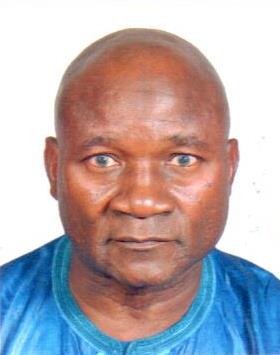
- Salabary Doumbia
- Visit: March to June 2020
From March to June 2020, he was a visiting scholar at the Institute of African Studies. His stay was aimed at the preparation of a paper on Wasolonkakan, a hitherto little known Manding variety spoken in southwestern Mali.
In this article Doumbia discusses sociolinguistic, phonological and syntactic aspects of Wasolonkakan. The research in the library of the University of Bayreuth allowed him to study the state of the arts, and, among others, to set the theoretical frame of the publication. Another aim of his stay was to participate in a joint project on updating the teaching material of Bambara (Bamanankan), a West African language taught at the language center of the University of Bayreuth.
Salabary Doumbia produced new texts and discussed the cultural issues and grammatical topics addressed there with Klaudia Dombrowsky-Hahn. Some of the newly produced texts were recorded and used in current Bambara courses. The stay at the University of Bayreuth enabled fruitful scientific exchanges.
Salabary Doumbia is senior lecturer at the Department of German at the Faculty of Literature, Languages, and Linguistics of the University of Bamako, Mali. He holds a PhD in African linguistics from the University of Bayreuth, where he accomplished his graduate studies in 1988.
- 13. February 2020: Prof. Charles Ratsifaritana - "Development of Radio Astronomy in Madagascar"Hide
-
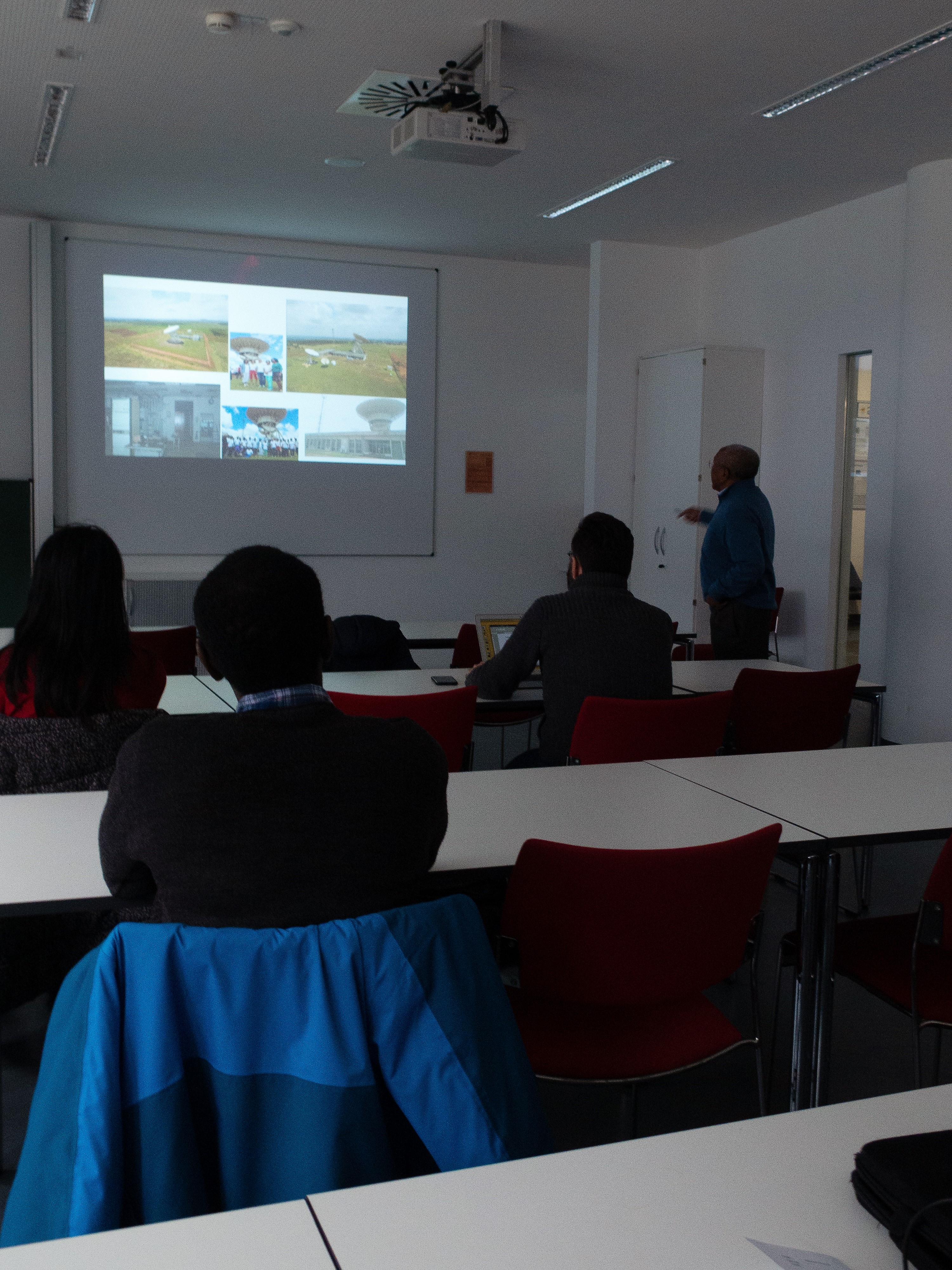
- Prof. Charles Ratsifaritana
- Visit: 10. through 14. Feburary 2020
The Post-doc Working Group "SKAnning Space from Africa: Seeing and Becoming" organized the public lecture “Development of Radio Astronomy in Madagascar” by Charles Ratsifaritana.
The workshop outline can be found here.
For further informations, please follow this link. - 12. February 2020: James Chibueze - “Networks, Power, and the Africa Very Long Baseline Interferometry Network”Hide
-
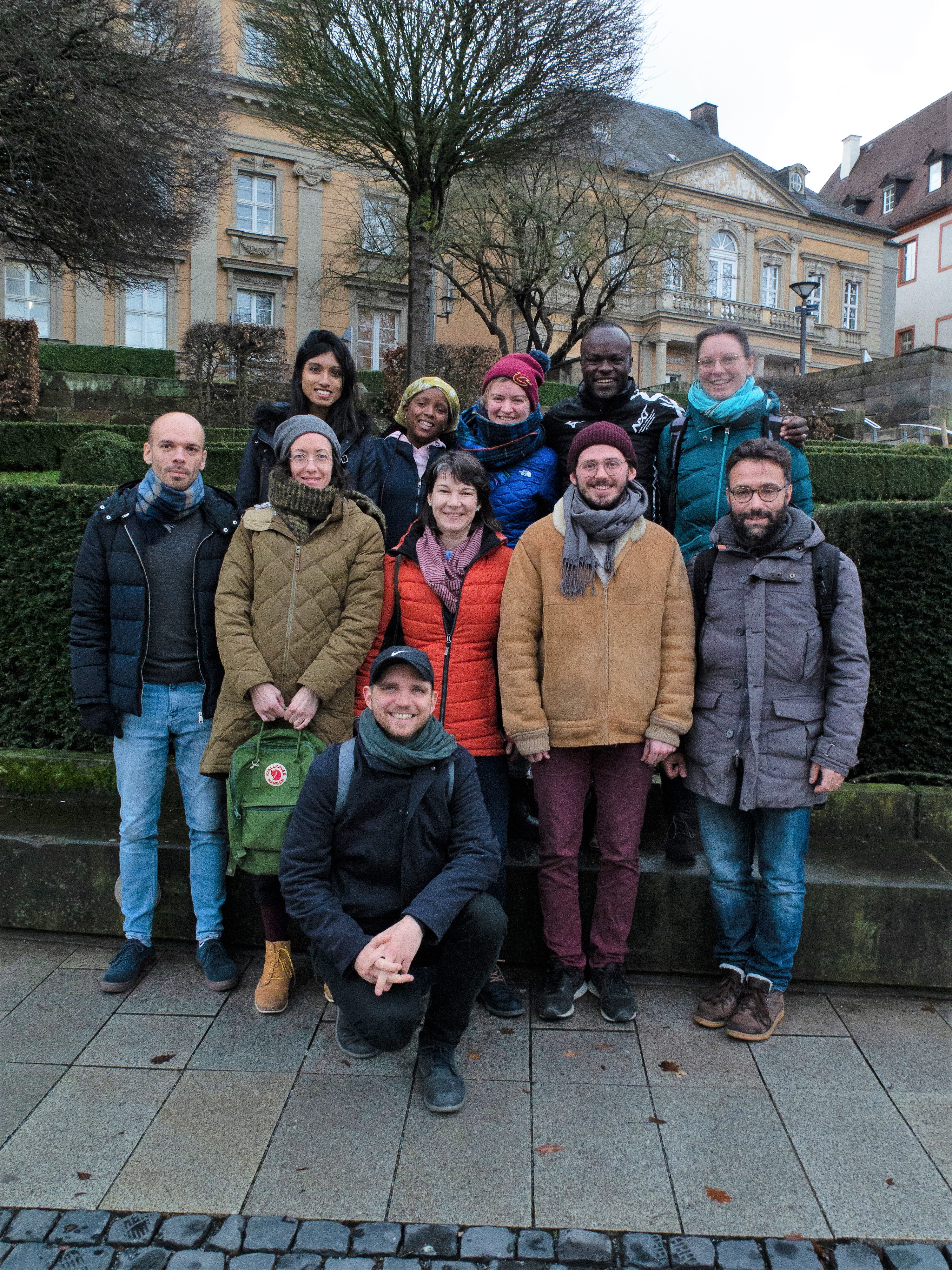
- James Chibueze
- Visit: 12. February 2020
The Post-doc Working Group "SKAnning Space from Africa: Seeing and Becoming" organized the public lecture “Networks, Power, and the Africa Very Long Baseline Interferometry Network” by James Chibueze.
The workshop outline can be found here.
For further informations, please follow this link. - James Chibueze
- 11. February 2020: Davide Chinigò - “Becoming with the Square Kilometre Array”Hide
-
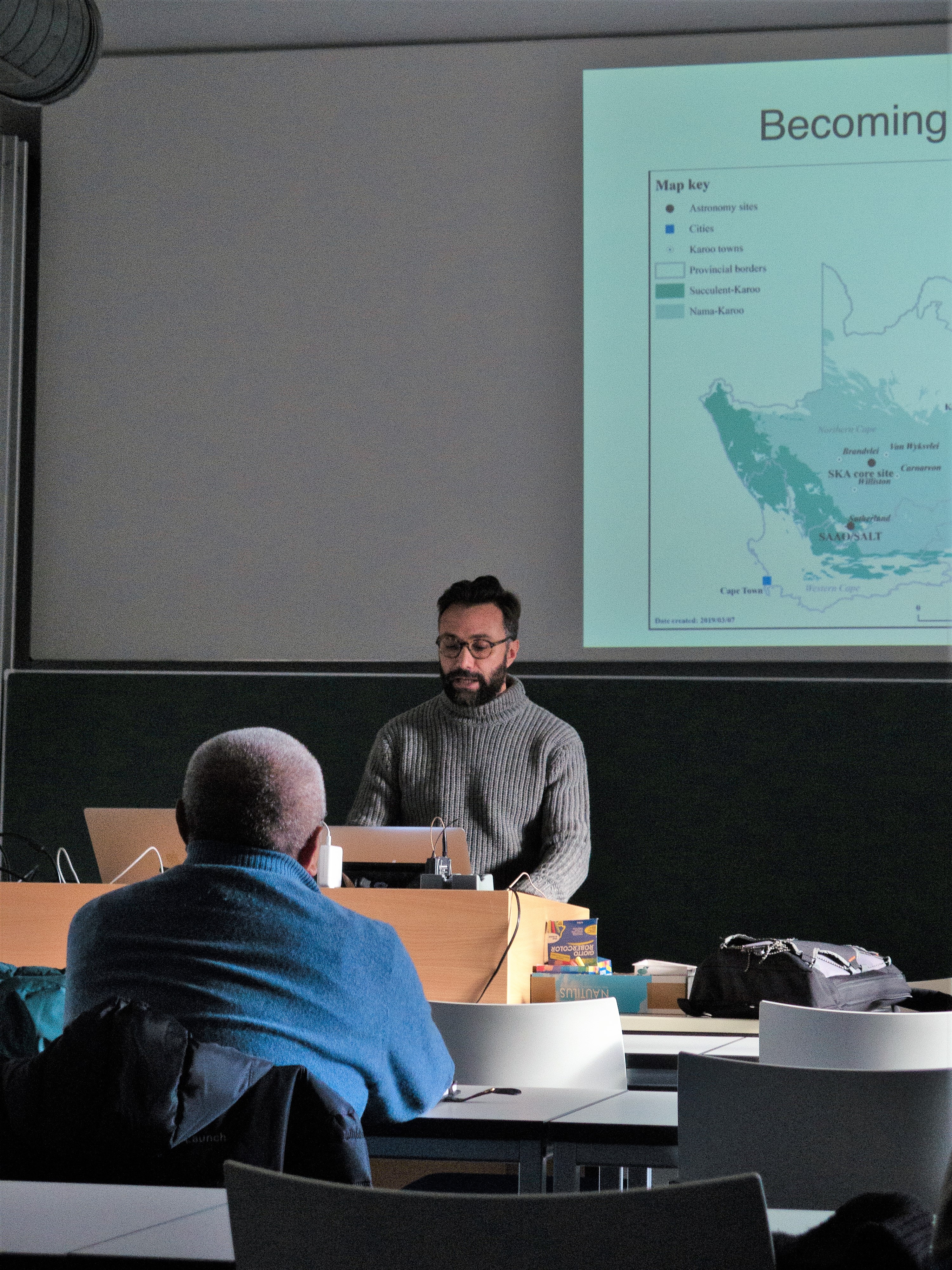
- Davide Chinigò
- Visit: 11. February 2020
The Post-doc Working Group "SKAnning Space from Africa: Seeing and Becoming" organized the public lecture “Becoming with the Square Kilometre Array” by Davide Chinigò.
The workshop outline can be found here.
For further informations, please follow this link. - Davide Chinigò
- 30. January 2020: Dr. Joe Spencer-Bennett - "Moral talk: debates about its forms, functions and value in political life"Hide
-
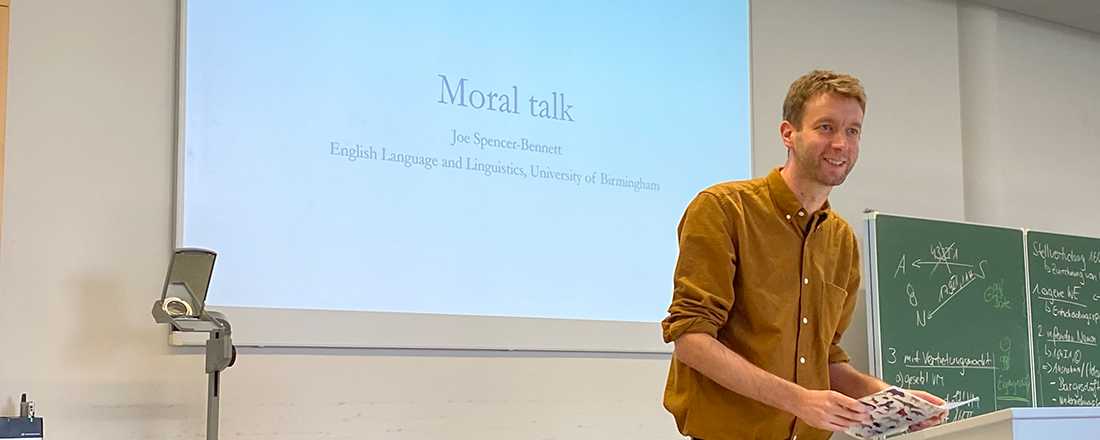
- Dr. Joe Spencer-Bennett
- University of Birmangham
- Visit: 29. through 31. January 2020
From 29 through 31 January 2020, Dr. Joe Spencer-Bennett was invited by the research section “Moralities” to stay at the University of Bayreuth for an exchange of ideas on the topic of moral communication. During his visit, the professor of Applied Linguistics gave a public lecture on "Moral talk: debates about its forms, functions and value in political life”.
Following an invitation of the Cluster of Excellence’s research section “Moralities”, an expert on the topic of Applied Linguistics visited the University of Bayreuth this January. Dr. Joe Spencer Bennett, senior lecturer at the University of Birmingham, joined the Cluster’s discussions from 29 to 31 January 2020. During his stay, the scholar exchanged ideas on concepts of moral communication with various Cluster members and participated in a work session of the project “Health discourses as moral communication? Linguistic case studies from Côte d'Ivoire and Cameroon”. The meeting had been convened by the project leader Prof. Dr. Martina Drescher. Together with Dr. Oumarou Boukari (University of Bayreuth/University of Bouaké, Ivory Coast), Dr. Jean-Benoît Tsofack (University of Dschang, Cameroon) and PhD student Laura Guadagnano M.A. Dr. Spencer-Bennett discussed the project related issues and gave valuable insight on the genuinely linguistic facets of moral communication.
For more information, please click here.
- Dr. Joe Spencer-Bennett
- 28. January 2020: Prof. Valentin Feussi - "De Manessy à Humboldt: enjeux épistémologiques d'une approche ...Hide
-
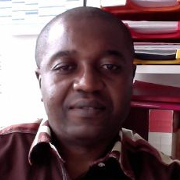
- Prof. Valentin Feussi (Université de Tours)
- "De Manessy à Humboldt : enjeux épistémologiques d'une approche expérientielle des 'français' en Afrique francophone"
- Visit: 28. January 2020
For further information, please click here.
- Prof. Valentin Feussi (Université de Tours)
- 26. – 29. January 2020: Prof. Valentin Feussi - Université François Rabelais (Tours, France)Hide
-
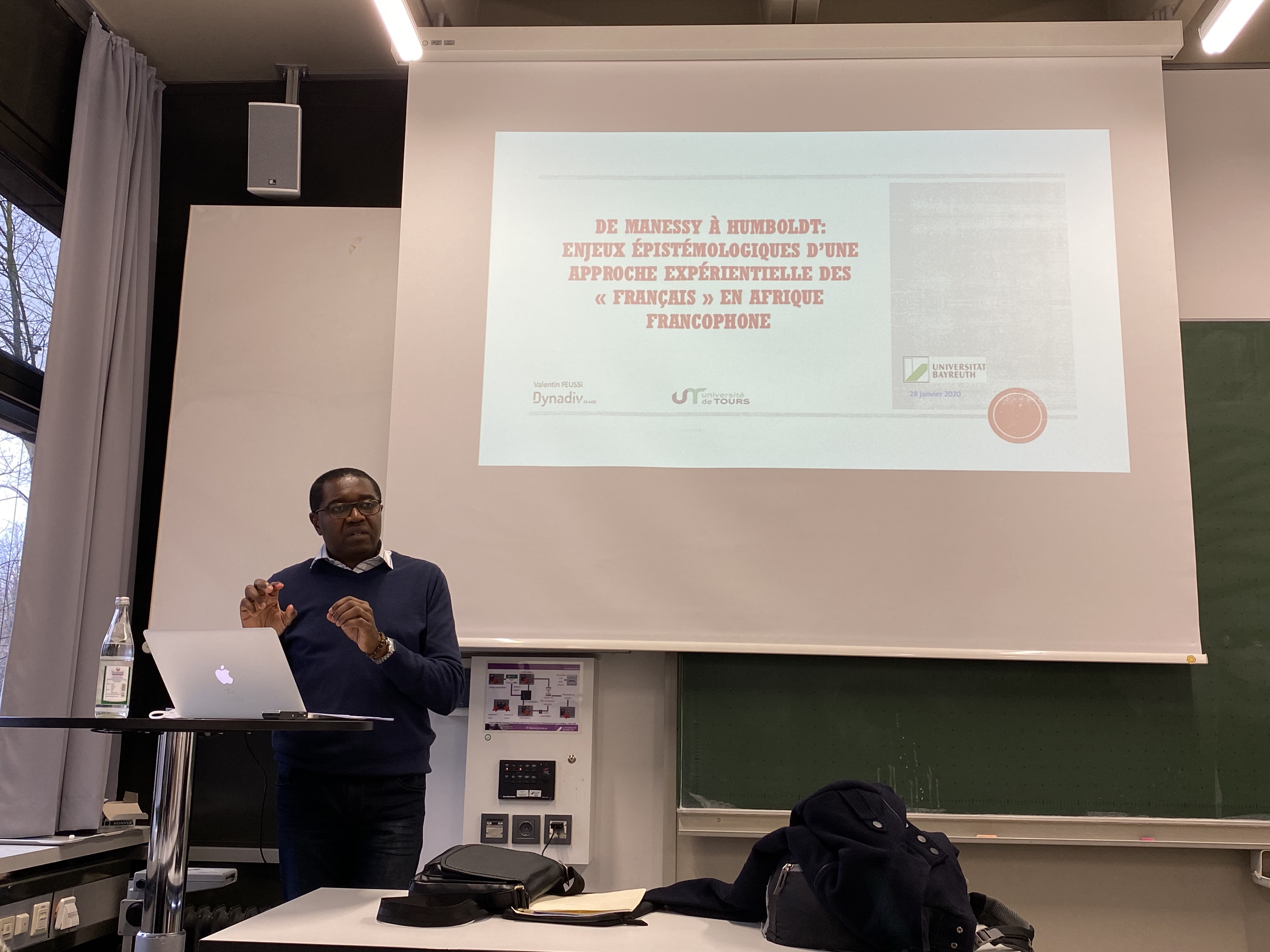
- Prof. Valentin Feussi
- Linguist at the Université François Rabelais in Tours (France)
- Visit: 26. through 29. January 2020
Prof. Feussi was invited by the research project “Health discourses as moral communication? Linguistic case studies from Côte d’Ivoire and Cameroon”. His stay aimed to advance the scholarly exchange between him and the project's members Prof. Dr. Martina Drescher, Dr. Oumarou Boukari und Laura Guadagnano, MA. Intensive discussions on the possibilities of field access, data corporations as well as on a more general note reflexive forms of data analysis and epistemological questions were joined by the project partner Dr. Jean-Benoît Tsofack (Université de Dschang, Cameroon) who was also in Bayreuth at the time.
As a renowned expert on the French language in Africa – and Cameroon in particular – Valentin Feussi has dedicated his work intensively to a critical and reflexive examination of francophony. He shared his perspective during a lecture titled “De Manessy à Humboldt: enjeux épistémologiques d'une approche expérientielle des ‘français’ en Afrique francophone“ that he held on 28 January 2020. Many of the project members as well as a considerable number of students of the masters “Études Francophones” attended.Prof. Feussi is a member of the Département de sociolinguistique et didactique des langues (SODILANG) and is currently working on the project DYNAmiques et enjeux de la DIVersité linguistique et culturelle (DYNADIV).
- 24. January 2020: Stella Dadzie - “Black Women Organising: Past Imperfect, Future Tense…”Hide
-
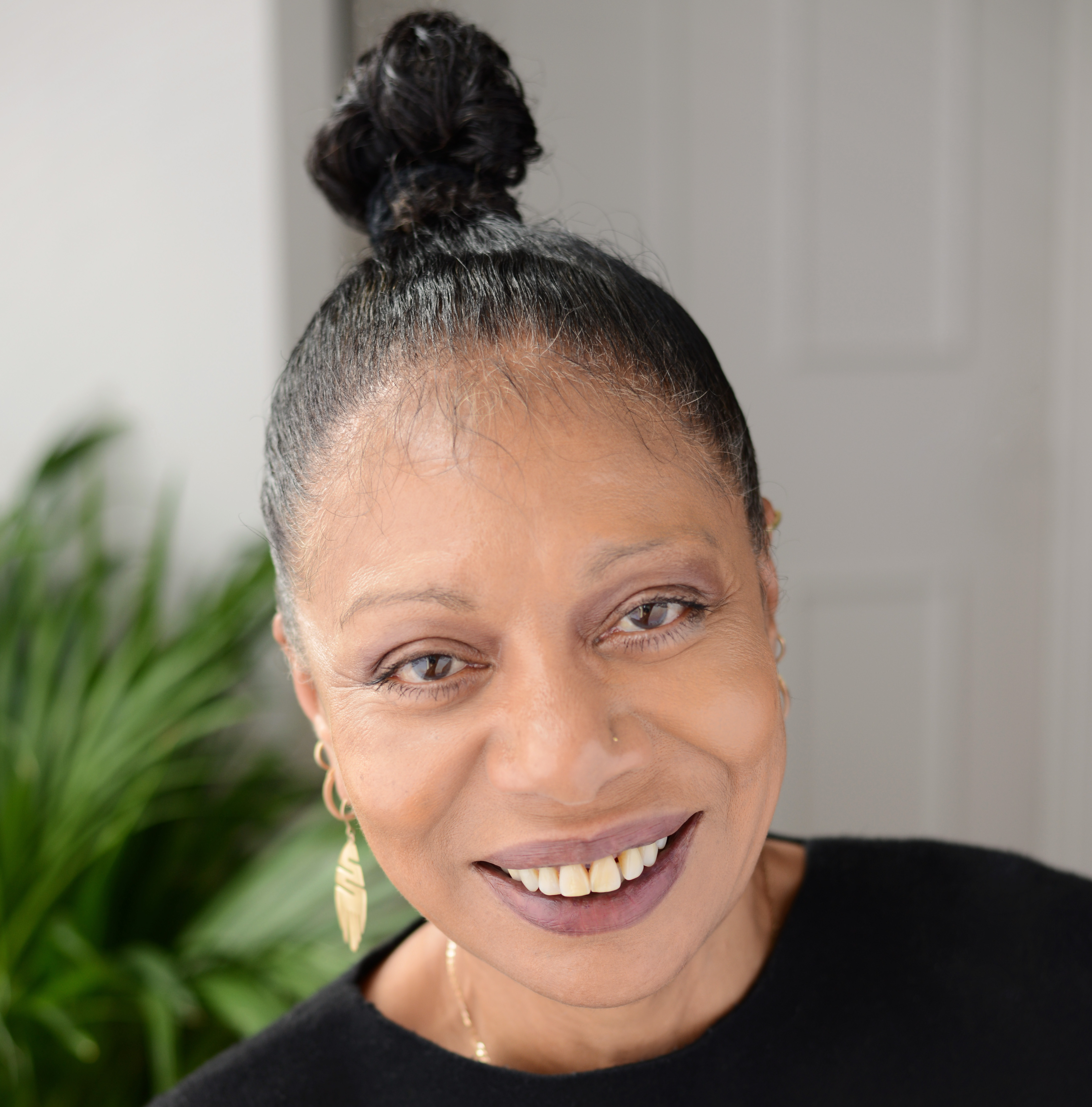
- Stella Dadzie
- Visit: 24. January 2020
The second event of the Cluster GDO’s Intersectional and Critical Diversity Literacy (ICDL) lecture and workshop series will feature the Black British educator and feminist activist Stella Dadzie, based in London. Located at the critical interface of education and social justice activism, Stella’s work proffers pragmatic linkages between academic sites and methodologies of knowledge production and current political activities in Black British sociocultural contexts.
For further information, please click here.
- Stella Dadzie
- 22. July 2019: Basil Ibrahim - "Four Funerals, and a Wedding: Social Life in the Wake of Rural Impossibility"Hide
-
- Basil Ibrahim
- Visit: 22. July 2019
As the possibilities for economic reproduction based on cash crop economies and remittances in rural western Kenya are increasingly foreclosed, this talk explores the replacement of older social collectivities by new forms of association. In Kakamega, ancestral farmland has been gradually transformed from a cultural asset that sustained social life and bound families in a web of interdependency across space and time. An ideology of productivity enacted through cash cropping and individual investment has made this farmland into exclusive private property. Subsequent land transfers introduce new settlers into villages whilst dispersing family through outward migration. Conflicts over this practice challenge the limits of patriarchal authority and attenuate the ritual practices of shared welfare that once summoned kin to ceremonies of social reproduction.
Basil Ibrahim is an independent scholar based in Nairobi, Kenya. His research and practical work have focused on the investigation and sustenance of voluntary associations in reaction to the vulnerabilities produced by late capitalism.
For further information, please click here.
- Basil Ibrahim
- 11. July 2019: Oshita O. Oshita - "Hegemonic philosophies and the Future of Conflict Resolution in Africa"Hide
-
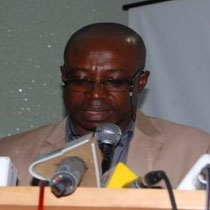
- Oshita O. Oshita
- Society of Peace Studies and Practice (fspsp), Institute for Chartered Mediators and Conciliators (ficmc), Nigeria
- Visit: 11. July 2019
Cognitive constructs often provide an epistemic basis for the control, manipulation and (dis)empowerment of people. Colonial experience and the Intelligence Quotient (IQ) debate are examples in Africa and the United States of America, respectively. The unity of science advocates present explanatory models that account for what people will normally do in given situations in all societies. The Deductive Nomological Model (DNM) of Carl Hempel and Paul Oppenheim generalizes based on this framing. We argue that this model fails to meet much of the requirements of social phenomena (human beings, values, emotions, evaluation). We also argue that the dominant philosophies upon which Conflict Resolution simulations are based require contextual epistemic conditioning to explain existential occurrences in African conflicts, without which violent conflicts will continue to escalate. We conclude that positive and impactful partnerships in Peacemaking and Conflict Resolution would therefore require mutually negotiated and pragmatic theory of inter-subjectivity that prioritizes context, local knowledge, expertise and symbolic representations.
Oshita is the Executive Director of Ubuntu Centre for Africa Peacebuilding and Development (UCAP), Abuja, Nigeria. He was the Director General of the Institute for Peace and Conflict Resolution (IPCR), Ministry of Foreign Affairs Abuja, Nigeria, 2014 to 2018.
For further information, please click here. - Oshita O. Oshita
- 4. July 2019: Dr. Mpho Tshivhase - "Competing Views of Uniqueness of Persons"Hide
-
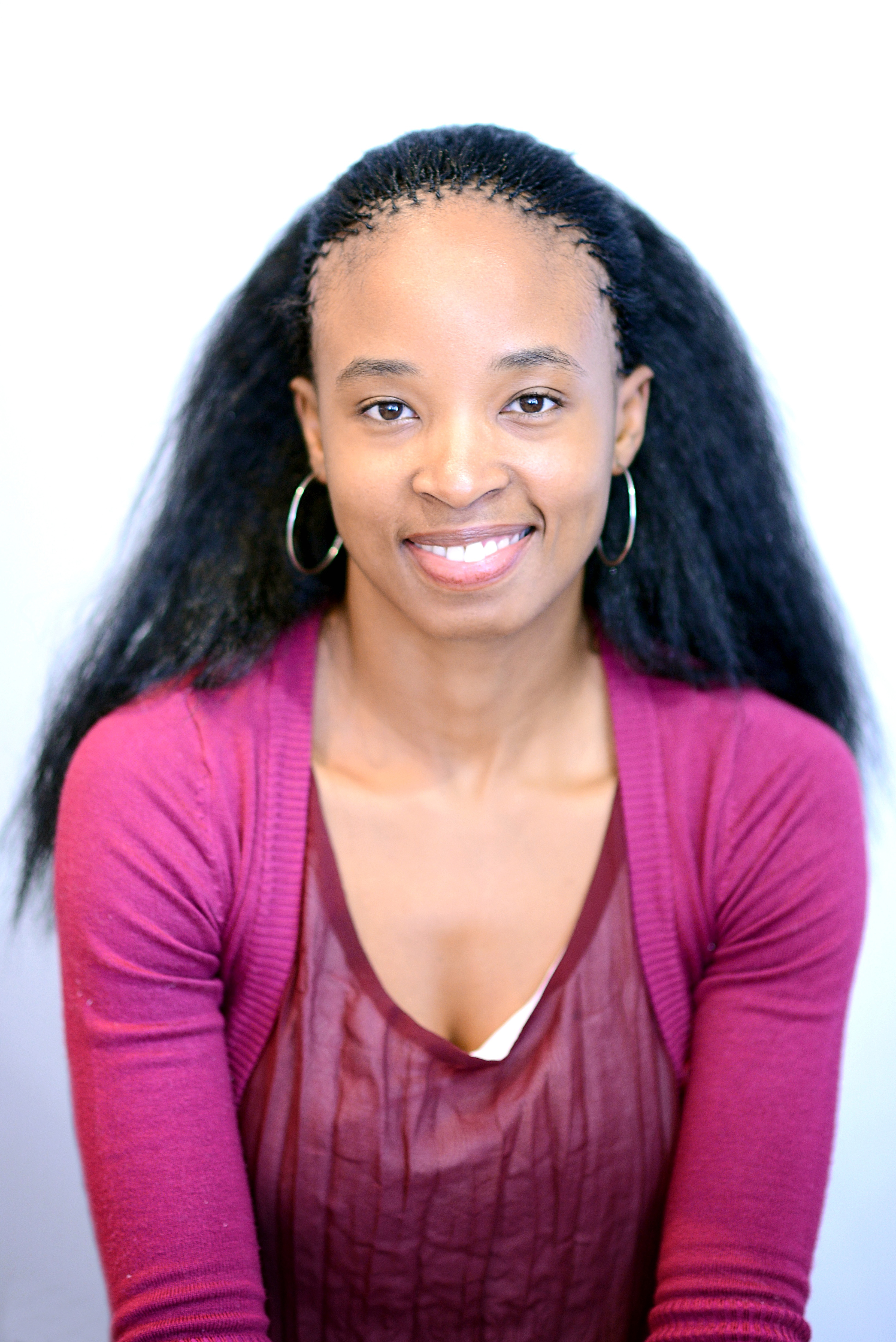
- Dr. Mpho Tshivhase
- University of Pretoria, South Africa
- Visit: 4. July 2019
Mpho Tshivhase is a South African philosopher who teaches applied ethics at the University of Pretoria. Her research is focused on uniqueness and individuality. As the first black South African woman to receive a PhD in philosophy (in April 2018 with a doctoral dissertation entitled "Towards a Normative Theory of Uniqueness of Persons"), Tshivhase was celebrated as "pioneering." Her achievement also opened discussions on the sociology of race and ethnic relations in South Africa. A primary question in Tshivase's research is whether uniqueness is an element of personal development that is worth pursuing at the expense of other things. Her overarching research concern aims to delineate what uniqueness amongst persons is and how humans relate to the concept of uniqueness.
For further information, please click here.
- Dr. Mpho Tshivhase
- 2. July 2019: Ella von der Haide - Queer Gardening in North America. Documentary and DiscussionHide
-
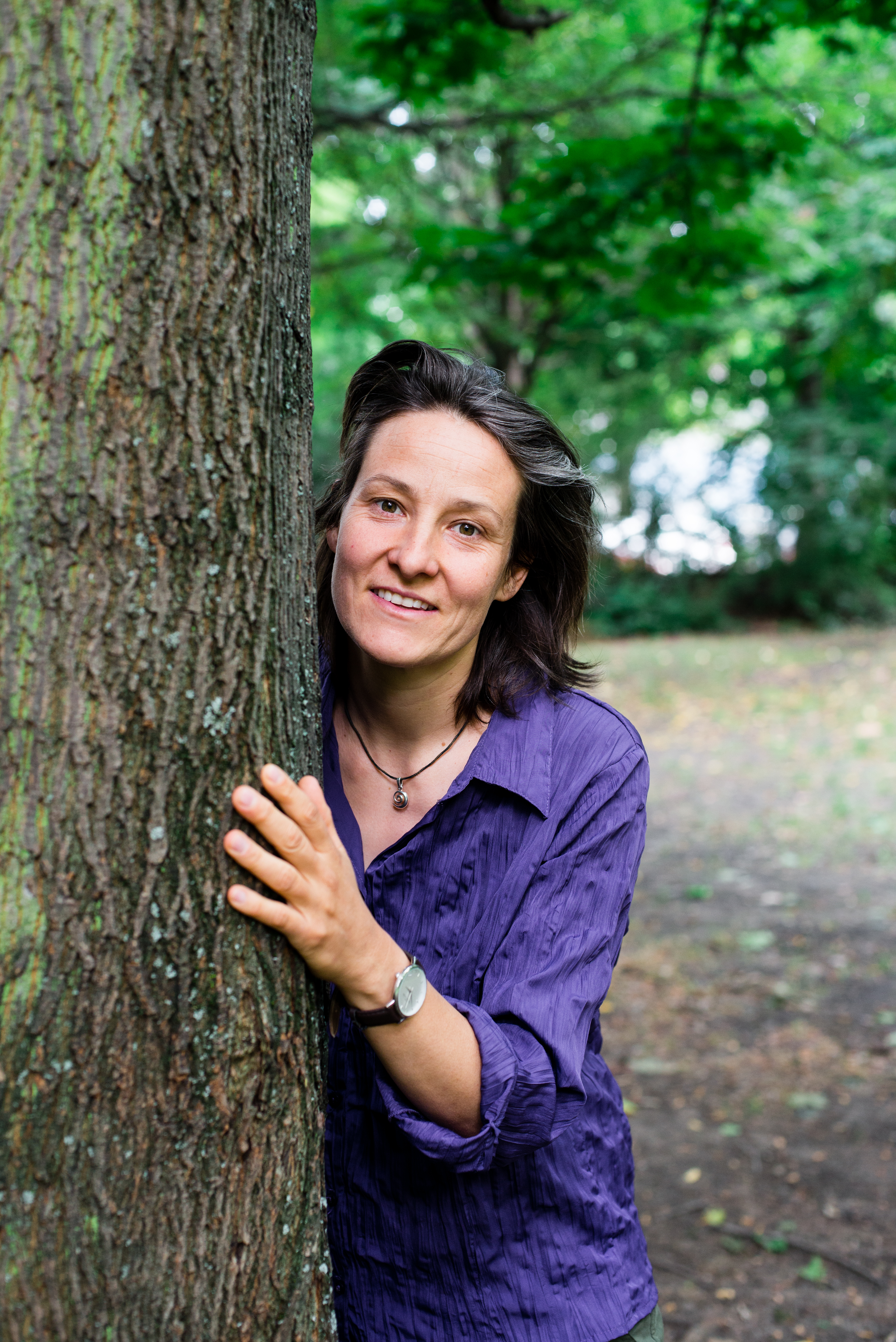
- Ella von der Haide
- Visit: 2. July 2019
Queer Gardening in North America examines how queerness is reflected in the horticulture, place making and poethics of LGBTQI* gardeners in North America. As part of a research project on queer-feminist ecologies and spatial planning, Ella von der Haide’s poetic and probing film examines how gardening can empower queers to develop their own ecologies. It is part of a longer series on community gardens, titled Another World is Plantable!
For further information, please click here.
- 13. June 2019: Prof. Clapperton Chakanetsa Mavhunga - "The Tsetse Fly and African Knowledge Production"Hide
-
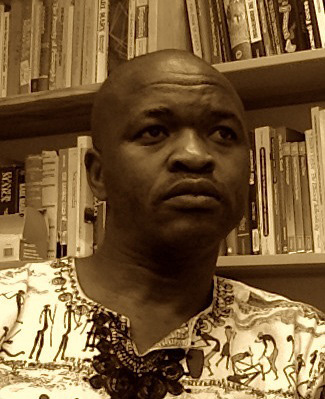
- Professor Clapperton Chakanetsa Mavhunga
- MIT, USA
The Mobile Workshop: The Tsetse Fly and African Knowledge Production
The tsetse fly is a pan-African insect that bites an infective forest animal and ingests blood filled with invisible parasites, which it carries and transmits into cattle and people as it bites them, leading to n'gana (animal trypanosomiasis) and sleeping sickness. Clapperton Chakanetsa Mavhunga examines how the presence of the tsetse fly turned the forests of Zimbabwe and southern Africa into an open laboratory where African knowledge formed the basis of colonial tsetse control policies. He traces the pestiferous work that an indefatigable, mobile insect does through its movements, and the work done by humans to control it.
For further information, please click here.
- Professor Clapperton Chakanetsa Mavhunga

